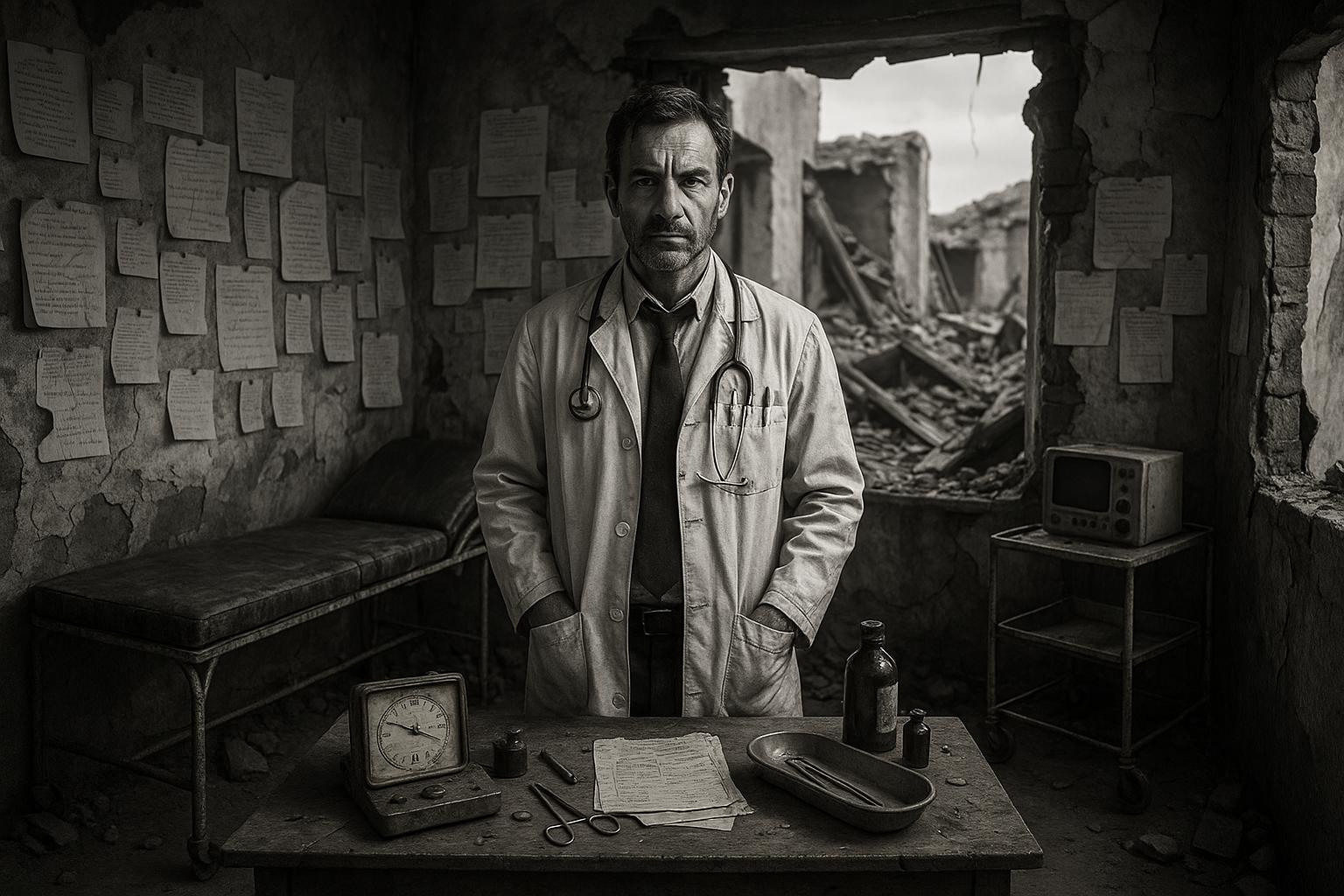King’s College London researchers, Professor Richard Sullivan and Dr Gemma Bowsher, recently reinforced their institution’s enduring collaboration with Ukrainian medical professionals through a visit to Lviv to participate in two significant conferences. Their involvement at the Global Medical Knowledge Alliance (GMKA) Quality and Safety Conference and the Women in Medicine Conference underscored King’s continued commitment to supporting Ukraine’s health sector amid ongoing conflict-related challenges. At the GMKA conference, they shared deep expertise in health system strengthening and cancer care delivery under conflict conditions, highlighting approaches to build resilient health services, ensure patient safety, and foster international collaboration in medical education and research. Meanwhile, at the Women in Medicine event, the duo engaged with Ukrainian clinicians and academics to discuss the critical role of women leaders in sustaining healthcare systems under severe pressure.
This visit builds upon years of cooperative efforts between King’s Centre for Conflict and Health Security and multiple Ukrainian institutions. Since the escalation of Russia’s full-scale invasion, Professor Sullivan and Dr Bowsher have collaborated closely with Ukrainian partners to assess the devastating impact of war on public health infrastructure and cancer care delivery. Their research has played a pivotal role in shaping international strategies that maintain oncology services in crisis-affected settings and has informed evolving policies designed to protect both health services and personnel operating under duress. Professor Sullivan, as Co-chair of the Centre, brings extensive experience in cancer control and health system reform in conflict zones worldwide, while Dr Bowsher's research focuses on strengthening health data systems and bolstering the resilience of healthcare professionals during wartime.
Beyond academic collaboration, King’s Health Partners (KHP) have taken practical steps to support Ukraine’s healthcare needs. One remarkable initiative is the Life Lines project, which facilitates the restoration and deployment of ambulances filled with critical medical supplies to war-torn regions, particularly supporting neonatal, children’s, and military field hospitals damaged by recent bombings. This project raises funds and garners medical supplies to sustain vital health services amid the ongoing conflict.
Additionally, KHP has mobilised its extensive supply chain resources to aid Ukraine by storing and dispatching clinical supplies, including personal protective equipment, bandages, sutures, and sanitisation materials. More than 200 pallets of such essential items have been delivered to hospitals, including those in frontline cities, reflecting a robust institutional commitment to immediate practical support on the ground. The partnership continues to focus on raising funds to procure further critical clinical supplies that frontline healthcare workers urgently require.
In a significant development reflecting the broader scope of King’s collaboration with Ukrainian institutions, a Memorandum of Understanding was signed in January 2024 between King’s College London, Taras Shevchenko National University of Kyiv, and the Federation Global Initiative on Psychiatry. This formal agreement aims to establish a Veteran Mental Health Centre of Excellence at Taras Shevchenko University. The centre will provide comprehensive rehabilitation and mental health services for war veterans and the wider Ukrainian society, addressing the profound psychological toll the conflict has inflicted on affected populations.
The UK’s wider support to Ukraine’s health sector is also visible through visits such as that by His Majesty The King to Imperial’s Centre for Injury Studies, which applies lessons learned from previous conflicts to assist injured service personnel from Ukraine. This highlights a strong, coordinated effort between research institutions to link scientific advances directly to humanitarian aid, ensuring that innovations in injury treatment and rehabilitation reach those wounded by the war.
Meanwhile, Ukrainian healthcare professionals continue to enhance their clinical skills through international networks like the Global Medical Knowledge Alliance. Sixty Ukrainian physicians recently completed an eight-week virtual Quality and Safety Course designed to fill critical gaps in Ukraine’s healthcare system. The course promoted high standards in clinical practice, focusing on clinical risk reduction, quality improvement initiatives, Enhanced Recovery After Surgery (ERAS) protocols, and interdisciplinary collaboration. This programme involved instruction from experts at leading global medical institutions, including King’s College London, ensuring that Ukrainian practitioners gain access to cutting-edge knowledge and support.
Together, these efforts illustrate a comprehensive, multi-faceted approach combining education, research, practical support, and international partnerships, all aimed at strengthening Ukraine’s healthcare system and safeguarding its medical personnel against the ongoing challenges posed by conflict.
📌 Reference Map:
- Paragraph 1 – [1], [2]
- Paragraph 2 – [1], [2]
- Paragraph 3 – [3], [4]
- Paragraph 4 – [4], [5]
- Paragraph 5 – [6]
- Paragraph 6 – [7]
Source: Noah Wire Services
